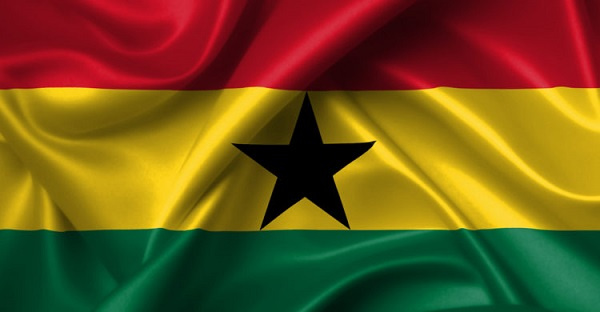Ghana’s struggle for sustainable development is not due to a lack of resources, policies, or plans—it is fundamentally a matter of mindset. After more than six decades of independence, our institutions remain burdened by inefficiency, corruption, and civic complacency.
The challenge is not merely institutional but psychological and cultural. We must therefore reexamine the way we think, act, and relate to one another as citizens of a common nation.
1. From the “I” Mentality to the “We” Mindset
In my recent paper, The Transformative Power of Mindset in Africa’s Development: A Collaborative Governance Model for Ghana (Asiedu, 2025a), I argue that Ghana’s progress depends on shifting from an individualistic “I” mentality to a collective “We” mindset.
The “I” mentality prioritizes self-interest, political patronage, and tribal loyalty. It is the root of corruption, selective justice, and weak civic responsibility. By contrast, a “We” mindset sees national development as a shared moral duty.
It compels citizens to view public service as a calling, not an opportunity for personal enrichment. It inspires citizens to see sanitation, law enforcement, and education not as “government problems” but as shared societal responsibilities.
As Francis Fukuyama (2018) and Robert Putnam (1993)
remind us, nations thrive when social trust and collective engagement become part of civic life.
2. Why Mindset Matters More Than Institutions Good governance is not built by laws alone—it depends on the behavioral culture of the people living under those laws.
The Collaborative Governance and Accountability Model (CGAM) and
Governance Quality (GQ) Metric I developed demonstrate how governance outcomes depend on three elements: Engagement, Accountability, and Transparency (Asiedu, 2025).
Survey results show that Ghanaians exhibit high levels of civic responsibility (Accountability = 0.93) and engagement (0.80), but relatively lower levels of trust in leadership (Transparency = 0.71).
The findings indicate that while citizens feel responsible for national progress, they often distrust their leaders—undermining collaboration between citizens and the state.
Without rebuilding this trust and fostering a shared moral compass anchored in honesty, empathy, and integrity, institutions—no matter how well designed—will remain hollow structures.
3. The Mindset Behind Ghana’s Urban Disorder My recent study, Broken Cities:
Who’s Behind Ghana’s Urban Chaos? (Asiedu, 2025b) https://doi.org/10.11114/aef.v12i4.8209, examined how urban disorder in Accra, Kumasi, and Tamale arises not only from weak institutions but from conflicting mindsets among key actors—government agencies, traditional authorities, and citizens.
Using the Multi-Actor Urban
Disorder (MAUD) model and its supporting tools—the Urban Governance Accountability
Matrix (UGAM) and the Governance Load Index (GLI)—I found that Ghana’s urban chaos is a co-produced phenomenon, not a random failure.
When chiefs sell land outside formal planning systems, when municipal assemblies fail to enforce building codes, and when citizens ignore sanitation rules, each actor contributes to systemic breakdown. This behavioral permissiveness becomes normalized until disorder feels inevitable.
As my research showed, cities like Accra and Tamale operate under “institutional
overload” (GLI > 1.0), where mandates exceed capacity, and civic compliance is minimal (Asiedu, 2025b).
In short, urban chaos reflects a collective mindset crisis—a society comfortable with disorder because it no longer believes in shared accountability.
4. Building the Mind Ghana Needs
To rebuild Ghana’s moral and developmental foundation, we must cultivate a mindset grounded in discipline, shared responsibility, and purposeful action.
1. Education for Character and Creativity: Schools must go beyond rote learning to teach civic ethics, innovation, and national responsibility. Education should produce ethical problem-solvers, not mere certificate-holders.
2. Leadership by Example: Political and institutional leaders must embody accountability and humility. Leadership should inspire discipline and hope—not fear and favoritism.
3. Community Accountability: Civil society, faith groups, and local associations must mobilize around the principle that development begins with the behavior of citizens, not just government directives.
4. Cultural Reorientation: National campaigns should promote cooperation and integrity over greed and tribalism. Public honor must return to those who serve selflessly, not to those who accumulate wealth without merit.
As emphasized in The Transformative Power of Mindset in Africa’s Development, governance transformation is behavioral before it becomes institutional (Asiedu, 2025a).
A nation that changes how its citizens think and act will automatically strengthen its institutions.
5. A Call to Action
Ghana’s future will not be defined by external aid, manifestos, or IMF bailouts—it will be defined by the mindset of its people. The country needs citizens who think like builders, not beneficiaries; who see national challenges as opportunities for service, not avenues for self-gain.
If we continue to think with the “I” mentality, Ghana will remain trapped in cycles of dependency and disillusionment. But if we embrace the “We” mindset—anchored in collective responsibility and ethical leadership—we can finally build a Ghana where systems work, cities are orderly, and progress is shared.
The mind Ghana needs for development is not one that waits for change, but one that becomes the change.
References
Asiedu, I. Y. (2025a). The Transformative Power of Mindset in Africa’s Development: A Collaborative Governance Model for Ghana. Applied Economics and Finance, 12(1), 45–55. https://doi.org/10.11114/aef.v12i1.7529
Asiedu, I. Y. (2025b). Broken Cities: Who’s Behind Ghana’s Urban Chaos?
https://doi.org/10.11114/aef.v12i4.8209.
Fukuyama, F. (2018). Identity: The Demand for Dignity and the Politics of Resentment. Farrar, Straus and Giroux.
Putnam, R. D. (1993). Making Democracy Work: Civic Traditions in Modern Italy.
Princeton University Press.
Gyimah-Boadi, E. (2019). Corruption and Institutional Weakness in Ghana. Accra: CDD-Ghana.
World Bank. (2017). Governance and the Law: World Development Report 2017.
Washington, D.C.: World Bank.
